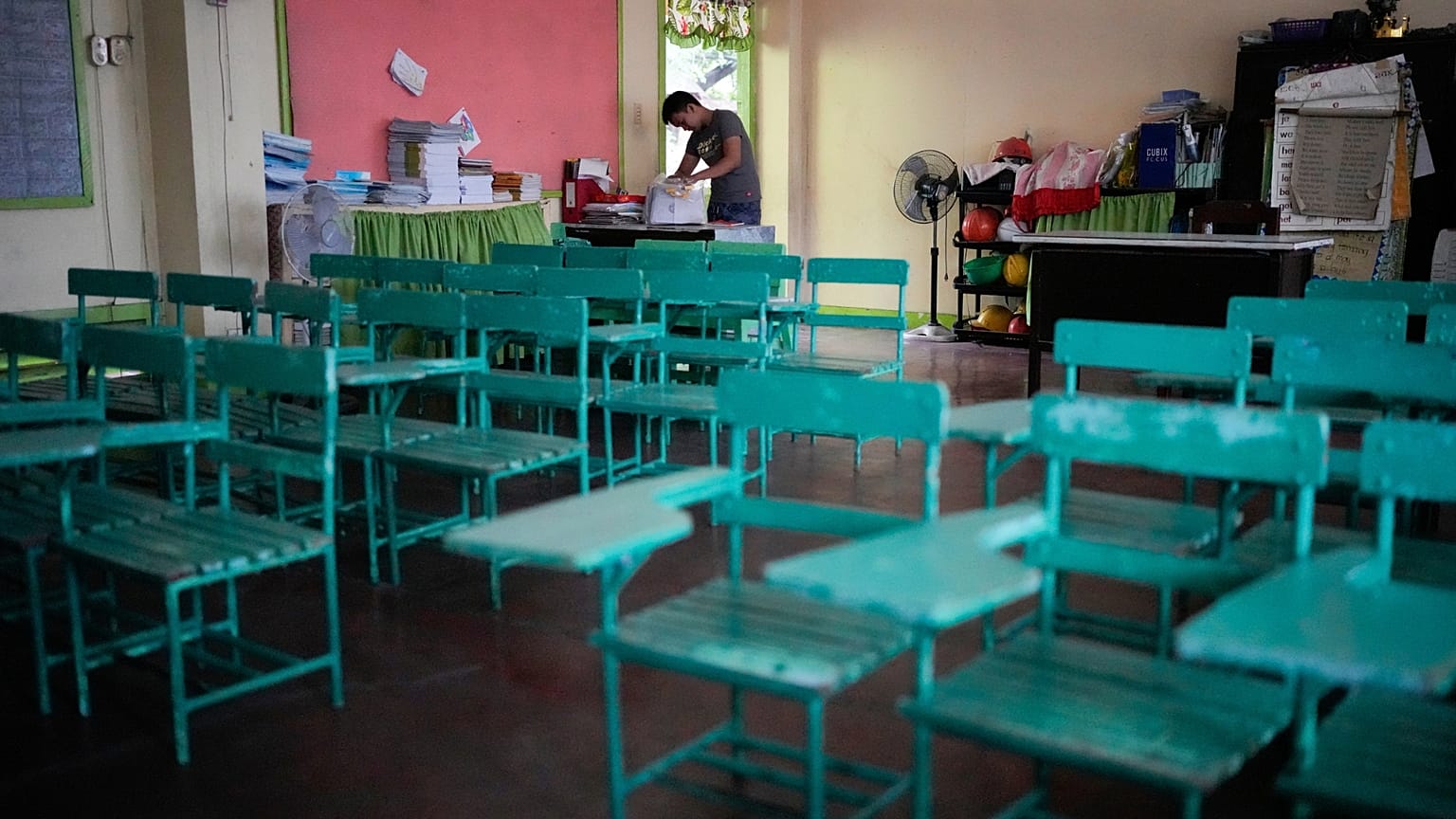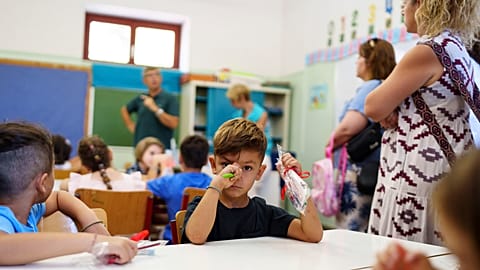Climate change isn’t just having a direct impact on education, it is also overlooked in climate finance spending.
A staggering 400 million students around the world have experienced school closures due to extreme weather since 2022, according to a new report from the World Bank.
Children in low-income countries have been hit the hardest with 18 school days lost each year on average compared to 2.4 days in wealthier nations.
A 10-year-old in 2024, the report found, will experience three times more floods, five times more droughts and 36 times more heatwaves over their lifetime compared to a 10-year-old in 1970.
Even when schools are open, children are still missing out due to climate change. In Brazil, for example, students in the poorest 50 per cent of municipalities could lose half a year of learning to heat alone.
“Young people are directly impacted by this crisis, and they are eager to act. Yet education systems are not delivering the information, skills and opportunities they need in a climate-affected world,” says Mamta Murthi, vice president, people vice presidency at the World Bank.
“This is a missed opportunity to harness the power of education so we can adapt and mitigate the climate crisis.”
A small investment could go a long way
Education isn’t just threatened by climate change itself, it is also massively overlooked when it comes to climate finance. Previous research has found that just 1.5 per cent of this vital funding goes towards education.
New estimates in the World Bank report, however, show that a relatively small amount of money could help schools adapt and minimise learning losses.
A one-time investment of just $18.51 (€16.75) per student would help safeguard learning from climate change by improving classroom temperatures, building resilient infrastructure and training teachers, among other adaptation measures.
“The promising news is that there are many low-cost steps governments can take to harness education and learning for climate action while adapting education systems to climate change,” says Luis Benveniste, global director of education at the World Bank.
“Improving school infrastructure, ensuring learning continuity and leveraging students and teachers as effective agents of positive change can all contribute to a more liveable planet.”
Students are eager to take green jobs
The demand for green skills in many low and middle-income countries vastly outpaces supply. And students are eager to do something about the climate crisis but many say they lack the knowledge and skills to act.
When asked, around 65 per cent of young people believe their future is at stake if they don’t develop green skills but 60 per cent say they didn’t learn enough about climate change at school. Based on data from 96 countries, the report shows that each year of education increases climate awareness by 9 per cent.
Many students - 73 per cent - also believe they can’t get a green job without Science, Technology, Engineering and Maths (STEM) skills. The World Bank analysis shows that green skills are being demanded at nearly all levels across low and middle-income countries.
Surveys done as part of the report are helping to bust these commonly held myths.


















